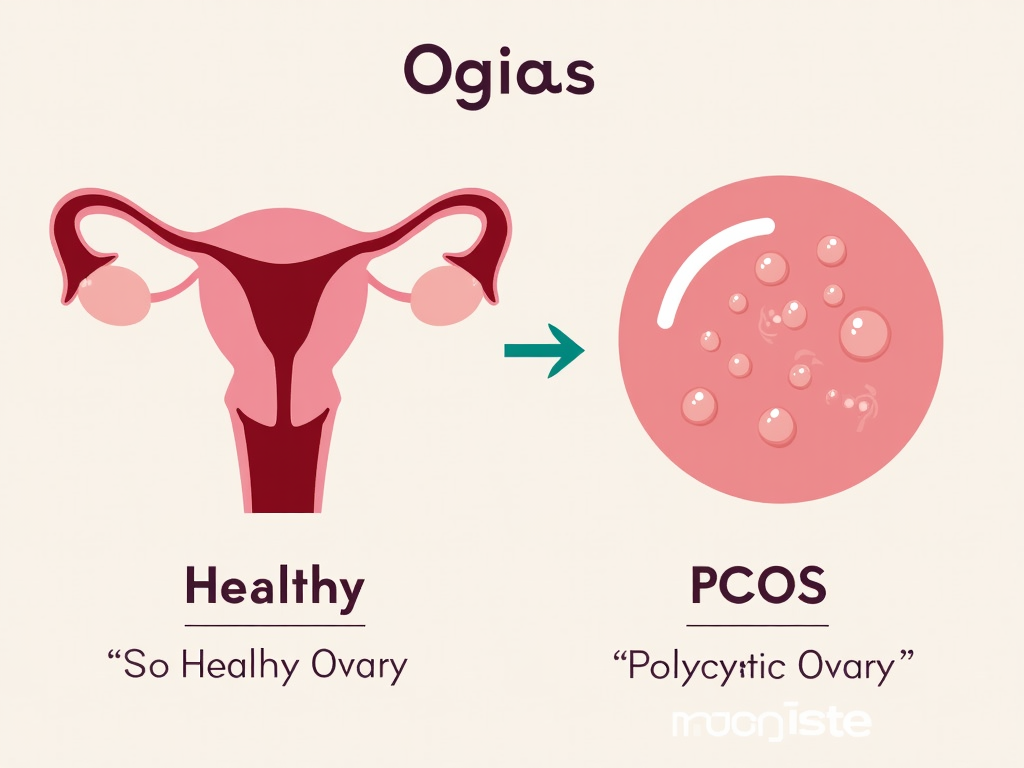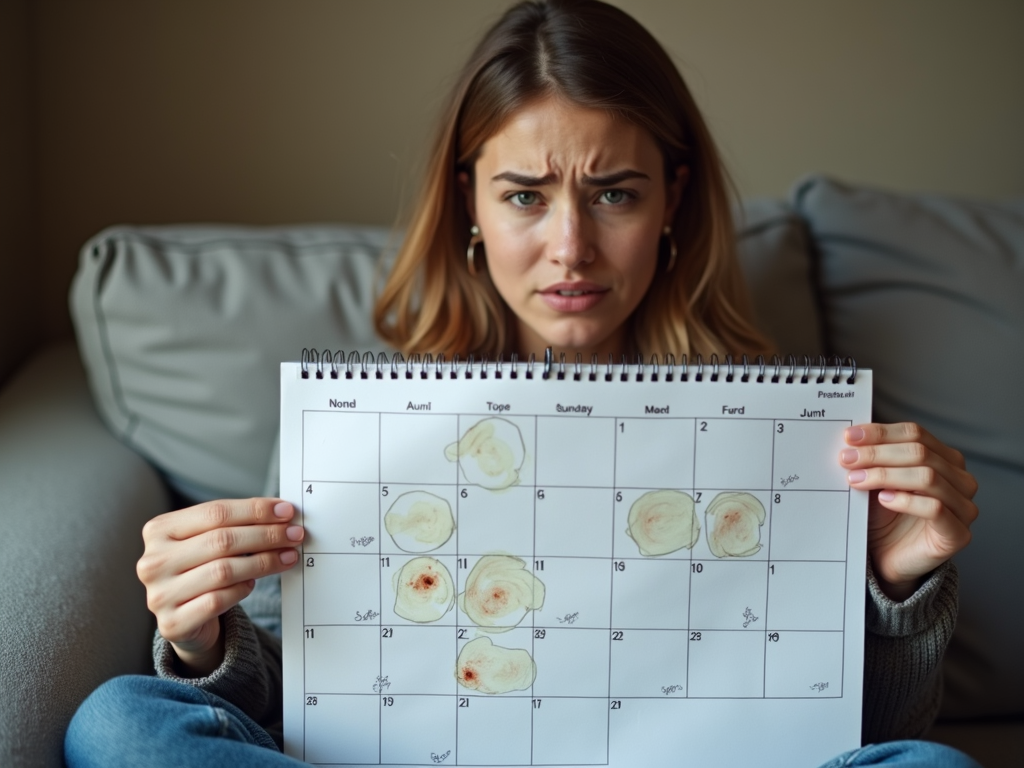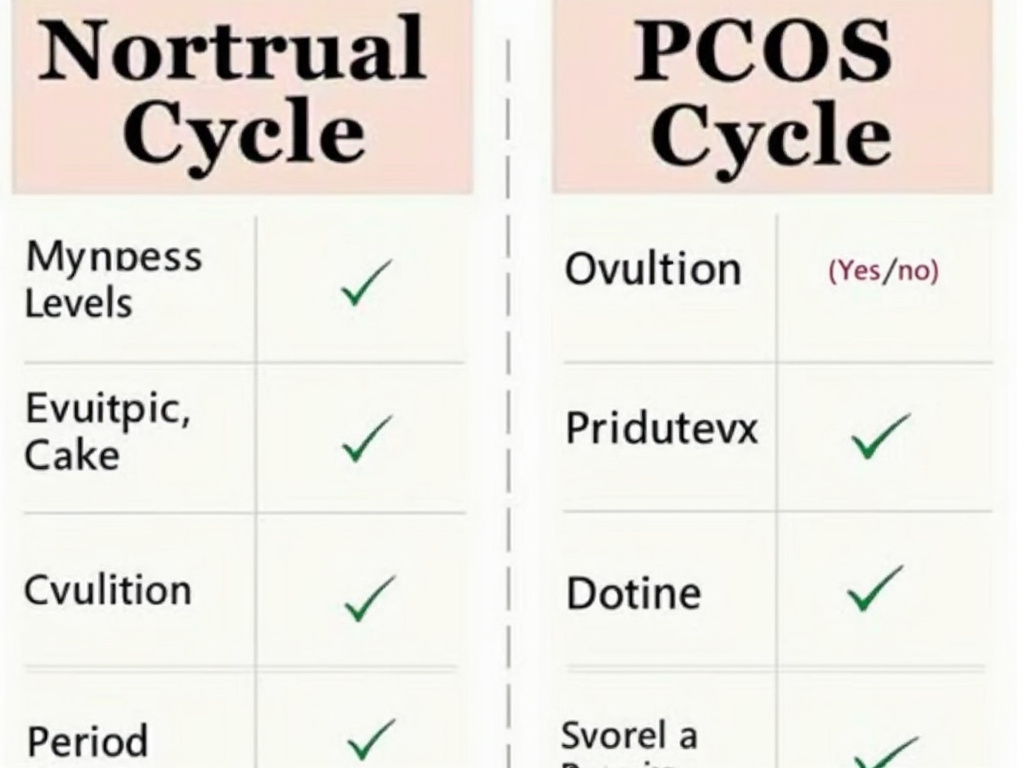Understanding PCOS: A Guide for Beginners
March 19, 2025, 8:57 a.m.
Overview: Polycystic Ovary Syndrome (PCOS) is a hormonal disorder affecting women of reproductive age. It causes irregular periods, excess hair growth, and sometimes infertility. This guide simplifies PCOS for beginners, offering clear insights and practical tips.
If you’ve just heard about Polycystic Ovary Syndrome—or PCOS—you might feel a bit lost. Don’t worry, you’re not alone. Millions of women deal with this condition every day, and many don’t even know they have it. This article, Understanding PCOS: A Guide for Beginners, is here to help you make sense of it all. We’ll walk through what PCOS is, how it affects your body, and what you can do about it—whether you’re facing irregular periods or wondering about fertility.

What is PCOS?
PCOS is a condition where the ovaries produce too many androgens—hormones often called 'male hormones,' though women have them too. This throws off the balance with estrogen and progesterone, the hormones that regulate your menstrual cycle. When this happens, your periods might become irregular, or you might develop small cysts—tiny sacs of fluid—on your ovaries.
But PCOS isn’t just about your ovaries. It can mess with your skin, causing acne or extra hair growth, and even make it harder to keep your weight in check. It’s a whole-body issue that can feel overwhelming at first. The good news? Once you understand it, you can start taking steps to feel better.

Common Signs of PCOS
PCOS shows up differently for everyone. Here’s a quick list of symptoms you might notice:
- Irregular Periods: Fewer than nine periods a year, or periods that are super heavy or barely there.
- Extra Hair Growth: Hair popping up on your face, chest, or back—sometimes called hirsutism.
- Acne: Stubborn pimples on your face, chest, or back.
- Weight Gain: Putting on pounds or struggling to lose them.
- Thinning Hair: Losing hair or seeing it thin out on your head.
- Skin Changes: Dark patches on your neck, groin, or under your breasts.
- Infertility: Trouble getting pregnant because ovulation isn’t happening regularly.
You might not have all these symptoms—maybe just a couple. That’s normal with PCOS. If something feels off, it’s worth checking with your doctor.

What Causes PCOS?
Doctors aren’t 100% sure what starts PCOS, but a few things seem to play a role:
- Insulin Resistance: Your body might not use insulin well, which can boost androgen levels and make symptoms worse.
- Hormone Imbalance: Too many androgens or not enough balance with other hormones.
- Family History: If your mom or sister has PCOS, your chances go up.
- Inflammation: Some think low-level inflammation might push your ovaries to make more androgens.
These factors can team up to create PCOS. Knowing what’s behind it can guide you toward the right fixes—like tweaking your diet if insulin is the troublemaker.

How is PCOS Diagnosed?
Getting a PCOS diagnosis usually involves a few steps:
- Your Story: Your doctor will ask about your periods, symptoms, and family health.
- Check-Up: They’ll look at your weight, blood pressure, and signs like extra hair.
- Blood Tests: These check your hormone levels, insulin, and more.
- Ultrasound: A quick scan to see if your ovaries have cysts or other changes.
There’s no one test that says ‘PCOS’ for sure. Doctors often look for at least two of these: irregular periods, high androgen levels, or cysts on your ovaries. It’s a puzzle they piece together.

Ways to Manage PCOS
PCOS doesn’t have a cure, but you can tackle its symptoms. Here’s what works for many women:
- Lifestyle Tweaks: Eating better and moving more can balance your hormones. Even losing a little weight can help.
- Medications: Birth control can fix periods and cut androgen levels. Fertility drugs like clomiphene help if you’re trying to get pregnant.
- Insulin Helpers: Metformin can manage insulin resistance.
- Hair Fixes: Laser treatments or electrolysis for unwanted hair.
- Mental Health: Therapy or support groups for the emotional side.
For women facing infertility, PCOS can make conception tough because ovulation gets spotty. Fertility drugs for PCOS, like clomiphene or letrozole, can kickstart your ovaries. If those don’t work, options like IVF might be next. A fertility doctor can tailor a plan for you.

My Experience with PCOS
When I first found out I had PCOS, I was scared. My periods were all over the place, and I felt like I couldn’t trust my own body. But learning about it changed everything. I started small—cutting sugar, walking more—and saw my energy come back. It wasn’t easy, but it was worth it.
One thing that helped me was talking to others. I found an online group where women shared their stories—some were moms who’d beaten infertility, others were just figuring it out like me. It made me feel less alone. If you’re dealing with PCOS, find your people. It matters.
Self-care became my lifeline too. Stress made my symptoms worse, so I picked up yoga. Even 10 minutes a day calmed me down and kept me grounded. Find what relaxes you—it’s not a luxury, it’s a need.

Wrapping Up
PCOS might feel like a big challenge, but it’s one you can handle. This guide has covered the basics—what it is, how it shows up, and what you can do. With the right info and support, you can take charge of your health and live well.
Want to dig deeper? Check out the recommended readings below for more on fertility, lifestyle tips, and finding support.